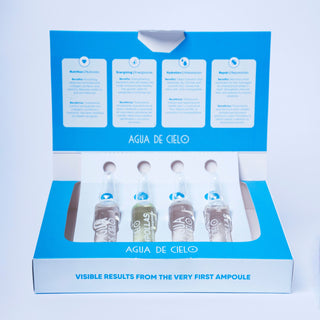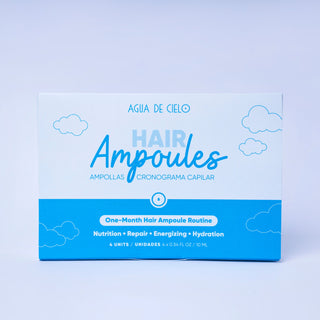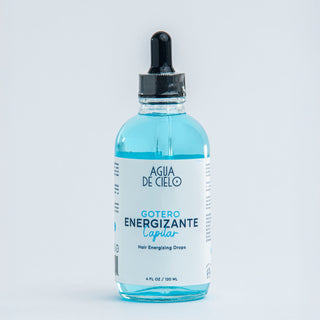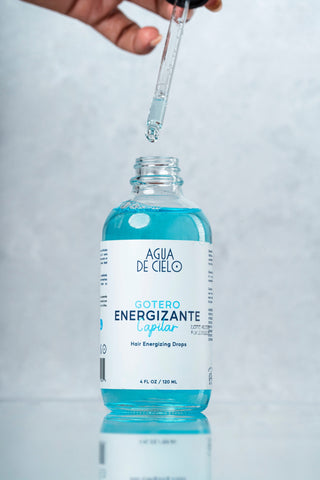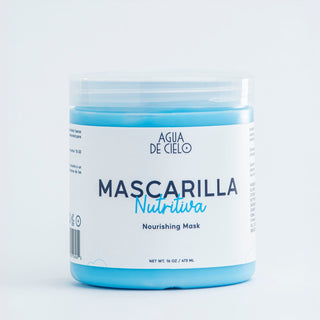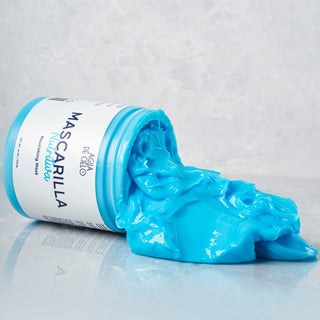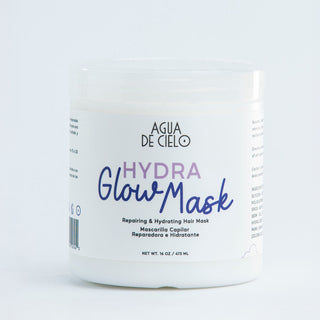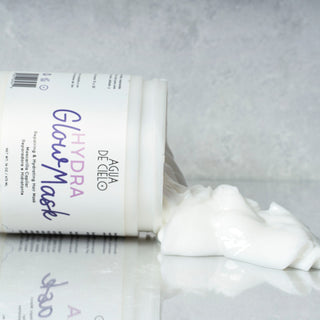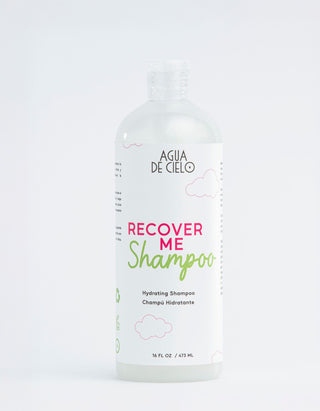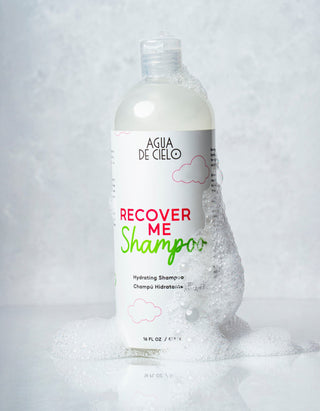When you think of salt (aka sodium chloride), probably the first thing that comes to mind is that stuff you put on your favorite foods to make it taste better.
But did you know that salt, can also cause some serious damage to your hair?
Yes, that's right, the same ingredient that makes your french fries taste delicious can also be your hair’s worst nightmare!
In our blog, we'll take a closer look at the salty truth about how this common ingredient can affect your hair health, and what you can do to protect it.
Table of Contents
- What is Sodium Chloride?
- Is Sodium Chloride Bad for Hair?
- Sodium Chloride and Hair Damage
- The Effects of Salt on Different Hair Types
- How to Avoid Sodium Chloride in Hair Products
- Healthy Hair Tips If Using Products with Sodium Chloride
- Conclusion
What is Sodium Chloride?
Before we get into the details on how salt is bad for your hair, let's first explain what it is. Sodium chloride, the chemical name of salt, is a compound that is made of sodium and chlorine. It's a white, crystal-like substance that is commonly used as food seasonings, preservatives, and your favorite hair products, including shampoos, conditioners and styling treatments.

Is Sodium Chloride Bad for Hair?
Sodium chloride can have a number of negative effects on hair.
Dries out your hair
One of the most common problems of salts in your hair products is dryness. Salt absorbs moisture from your hair, making your hair look dull and lifeless. This then can lead to breakage and split ends.
If you already have dry or damaged hair, using products with high levels of salt can aggravate it by stripping away the natural oils that help to keep your hair hydrated.
Still not convinced that salt is bad for your hair? Try remembering those times at the beach when your hair would feel all stiff and dry from the salt water and you just couldn’t wait to wash your hair.
Can lead to dandruff
If you have a dry scalp, salt can aggravate dandruff by drying out the scalp and causing flakes to form. You can learn more about dandruff prevention and care in our blog here.
Causes breakage
Salt can also cause your hair to become brittle and thin. This is because it can weaken the hair shaft, making it more prone to breakage. If you're already dealing with thinning hair, using products with sodium chloride can worsen the problem.

Damages the hair follicle
The hair cuticle is the outermost layer of the hair strand, and it helps to protect the hair shaft. Salt can damage the cuticle, leading to frizz and a lack of shine.
Fading
If you dye your hair, using products that contain salt can cause your color to fade faster. This is because sodium chloride can strip away the protective layer of your hair, allowing the dye molecules to escape.
Sodium Chloride and Hair Damage
So why is sodium chloride bad for hair? The answer lies in the science of hair structure. Hair is made up of a protein called keratin, which includes many different layers. The cuticle is the outermost layer of the hair shaft and its job is to protect the hair from damage and help retain moisture. When hair is exposed to sodium chloride, it can disrupt the structure of the cuticle. This can cause it to become rough and uneven, causing your hair to look lifeless and frizzy. This can also lead to moisture loss and damage to the inner layers of the hair shaft.
The Effects of Salt on Different Hair Types
The effects of sodium chloride on hair can vary depending on your hair type.
Fine hair
Using products that contain sodium chloride can make your hair look limp and lifeless. This is because sodium chloride can weigh down your hair, making it harder to style and giving it less volume.
Curly hair
Curly hair is naturally more exposed to dryness and breakage, and sodium chloride can worsen these issues. Salt can also cause curly hair to lose its shape and become frizzy. Oh no!
Color-treated hair
Sodium chloride in hair products can cause your color to fade more quickly. This is because the chemical can strip away the cuticle (outermost layer), allowing the dye molecules to escape. If you are trying to maintain your color for as long as possible, it's recommended to avoid using sodium chloride in your hair products.
How to Avoid Sodium Chloride in Hair Products
So, how can you avoid the negative effects of salt on your hair? Here are a few tips:
- Opt for a salt-free shampoo: Seems easy right? Well actually many common shampoos contain salts. Make sure to look for a shampoo that states its "salt-free" or that contain low levels of salt or sodium chloride. You can try our Recover Me Shampoo, an organic hydrating shampoo free of salts, sulfates and silicones. It's made with a powerful, plant-based formula that deeply cleans and keeps your hair hydrating and healthy.
- Avoid using hot water: Hot water can strip your hair of its natural oils, making it more prone to dryness and breakage. Use lukewarm or cool water instead. It may be less comfortable, especially on those cold days but your hair will thank you for it.
- Use a deep conditioning treatment: Deep conditioning treatments can help to moisturize and nourish dry, damaged hair, helping to repair the damage caused by salt. If you haven’t already, try adding a conditioning hair mask to your routine to help. Our Hydra Glow Hair Mask is organic and has a powerful blend of plant-based ingredients to regenerate the hair follicle.
- Limit your use of styling products: If you use styling products that contain salt, try to use them sparingly. Overuse can lead to dry, damaged hair. Opt for styling products free of salts.
By following these tips, you can help to protect your hair from the damaging effects of salt and keep it healthy and strong.

Our powerful salt-free Recover Me Shampoo and Hydra Glow Hair Mask
Healthy Hair Tips If Using Products with Sodium Chloride
If you do decide to go against our recommendations and continue to use products with salt, there are steps you can take to minimize or even prevent the adverse effects on your hair. First is to use a good hydrating conditioner. This will help to restore moisture to your hair and protect it from further damage. You can try our Hair Hydrate 2 in 1 leave-in conditioner and heat protectant, that will keep your hair hydrated all day long—without weighing it down.
Another tip is to reduce your use of heat styling tools. Heat can further damage hair that has already been weakened by products with sodium chloride, so it's best to avoid using these tools as much as possible. If you do need to use heat styling tools, be sure to use a heat protectant spray to minimize damage.
Finally, make sure to stay hydrated and eat a healthy diet. Drinking plenty of water and eating foods that are rich in vitamins and minerals can help to keep your hair healthy and strong.
Conclusion
Now you know the salty truth about sodium chloride and hair care. From dryness and breakage to color fading and thinning, this hair care enemy can cause some serious and long-lasting damage to your hair. If you're worried about the health of your hair, then the best way to protect it is to avoid using products that contain sodium chloride.
Want to learn more about the dangers of certain chemicals found in your everyday hair products?
Make sure to check out our other blogs on these chemicals:
- 3 Reasons to Ditch Sulfates and Give Your Hair the TLC it Deserves
- The Truth About Parabens: Understanding Their Impact on Your Health
- Silicone in Hair Products: Friend or Hair Care Enemy You Need to Avoid?



